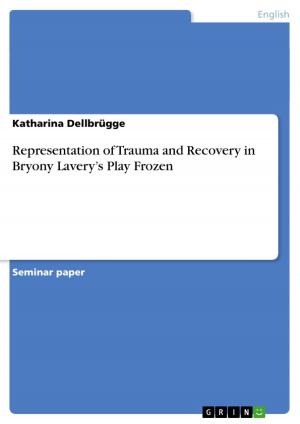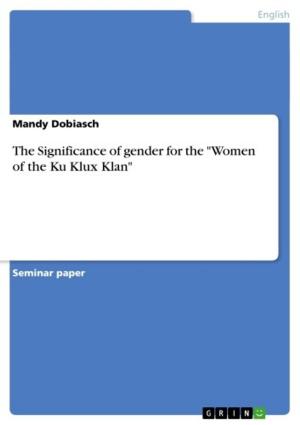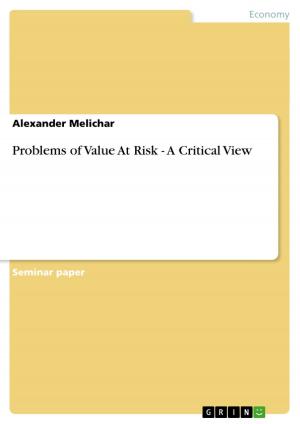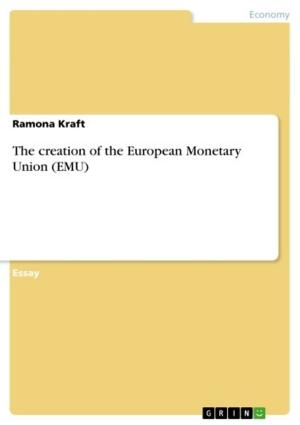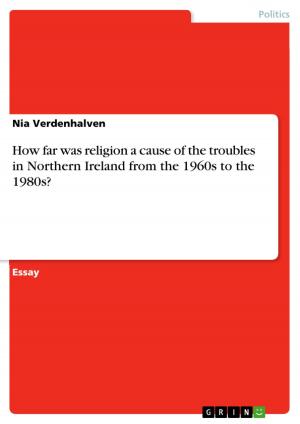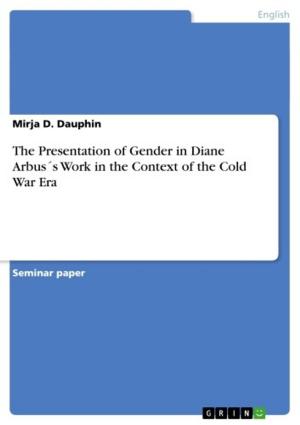Can the recent experiences of the formerly communist states be compared in any meaningful fashion?
Nonfiction, Social & Cultural Studies, Political Science| Author: | Christopher Selbach | ISBN: | 9783638213202 |
| Publisher: | GRIN Publishing | Publication: | September 8, 2003 |
| Imprint: | GRIN Publishing | Language: | English |
| Author: | Christopher Selbach |
| ISBN: | 9783638213202 |
| Publisher: | GRIN Publishing |
| Publication: | September 8, 2003 |
| Imprint: | GRIN Publishing |
| Language: | English |
Essay from the year 2001 in the subject Politics - International Politics - Region: Russia, grade: 1.3 (A), University of Leeds (POLIS), 28 entries in the bibliography, language: English, abstract: The collapse of communist systems in Europe and the break-up of the Soviet Union have opened a completely new field for political, economic and social study: post-communism. Since then, several efforts have been made to explain the quite different outcomes of what has often been regarded as a common starting point. This cannot surprise: the concept of postcommunism itself implies that the similarities between formerly communist countries overweigh their differences, and a comparative study is hoped to uncover the set of theories that could be applicable to at least most of the region, if not beyond that. But has this approach been successful so far? Or do the current results rather suggest that post-communist studies after merely ten years of existence are lacking behind twenty years already, as it has been put provocatively for the political field? Is there a useful way of comparing the experiences of the formerly communist states, or might such an approach be initially a fraud? This essay tries to answer these questions in the following way: first of all, it gives an overview over post-communist experiences, in order to come, secondly, to a characterisation of the phenomenon. Thirdly, the main theoretical approaches on the subject that are based on comparison are discussed. As a conclusion of these comparative studies, the author argues that post-communism can only be generalised as a phenomenon if seen as an experience of, and challenge to, collective identity.
Essay from the year 2001 in the subject Politics - International Politics - Region: Russia, grade: 1.3 (A), University of Leeds (POLIS), 28 entries in the bibliography, language: English, abstract: The collapse of communist systems in Europe and the break-up of the Soviet Union have opened a completely new field for political, economic and social study: post-communism. Since then, several efforts have been made to explain the quite different outcomes of what has often been regarded as a common starting point. This cannot surprise: the concept of postcommunism itself implies that the similarities between formerly communist countries overweigh their differences, and a comparative study is hoped to uncover the set of theories that could be applicable to at least most of the region, if not beyond that. But has this approach been successful so far? Or do the current results rather suggest that post-communist studies after merely ten years of existence are lacking behind twenty years already, as it has been put provocatively for the political field? Is there a useful way of comparing the experiences of the formerly communist states, or might such an approach be initially a fraud? This essay tries to answer these questions in the following way: first of all, it gives an overview over post-communist experiences, in order to come, secondly, to a characterisation of the phenomenon. Thirdly, the main theoretical approaches on the subject that are based on comparison are discussed. As a conclusion of these comparative studies, the author argues that post-communism can only be generalised as a phenomenon if seen as an experience of, and challenge to, collective identity.







